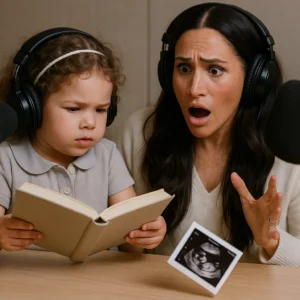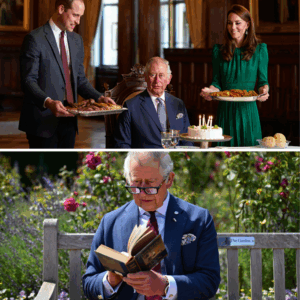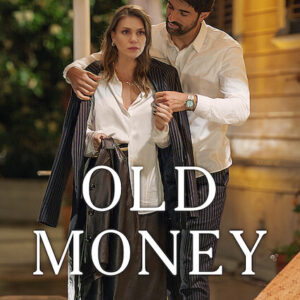In the labyrinthine alleys of Istanbul, where the call to prayer mingles with the sizzle of street-side grills and the Bosphorus laps at ancient shores, the Bocek family’s November 2025 getaway was meant to be a tapestry of rediscovery. Servet Bocek, a 38-year-old mechanic from the rainy streets of Hamburg, Germany, had long promised his young family a plunge into the vibrant chaos of his Turkish roots. With his wife, Cigdem, 27, a devoted homemaker whose laughter could disarm the sternest stranger, and their two cherubic children—Kadir, a wide-eyed six-year-old with a penchant for soccer balls, and Masal, a three-year-old sprite who collected seashells like treasures—they boarded a flight from Frankfurt on November 9. The trip, a week-long immersion in the city’s historic heartbeat, promised kebabs under starlit skies, boat rides across the strait, and a chance for Servet to show his kids the land of his ancestors. Instead, it ended in a cascade of agony and loss, with preliminary forensic reports now pointing not to tainted mussels from a bustling Ortakoy stall, but to a lethal cocktail of pesticides wafting through the vents of their modest hotel room. As Istanbul’s prosecutors unravel the threads of negligence, the tragedy exposes the hidden fractures in Turkey’s booming tourism machine—a sector that lures millions with promises of paradise but too often skimps on safety in the shadows.
Servet and Cigdem’s story was one of quiet resilience, a immigrant’s tale etched in the grit of German winters and the warmth of Turkish summers. Servet, born in the central Anatolian town of Bolvadin—a dusty outpost of olive groves and minarets 240 kilometers southwest of Ankara—had emigrated to Germany in his teens, chasing the steady rhythm of factory work. In Hamburg’s multicultural mosaic, he met Cigdem, a fellow Turkish-German whose family had fled political unrest in the 1980s. Theirs was a whirlwind romance, sealed in a modest ceremony overlooking the Elbe River, where Servet vowed to build a life of stability amid the uncertainties of diaspora. Kadir arrived first, a bundle of boundless energy who inherited his father’s sturdy build and his mother’s sparkling eyes; by 2019, Masal completed the picture, her curly locks and infectious giggles turning every family outing into a parade.
Life in Hamburg was unflashy but fulfilling: Servet rising before dawn for shifts at a local garage, his hands perpetually stained with oil as he dreamed of one day opening his own shop. Cigdem managed the home front with grace, her days a blur of preschool runs, homemade borek baking, and evening story hours where she’d weave tales of sultans and genies for her rapt audience. The family squeezed into a compact apartment in the working-class suburb of Wilhelmsburg, where the air hummed with the chatter of Turkish markets and the distant hum of container ships. Vacations were rare luxuries—weekend picnics in the Alster Lake park or drives to the North Sea—but Turkey beckoned like a siren’s call. “It’s time they saw where Papa’s heart beats strongest,” Servet told friends over coffee one crisp autumn evening, his voice thick with anticipation. With savings scraped from overtime and Cigdem’s side gigs sewing traditional embroidered blouses, they booked the Harbour Suites Old City Hotel in Istanbul’s Fatih district—a budget-friendly haven near the iconic Blue Mosque, promising clean linens, continental breakfasts, and a rooftop view of the Golden Horn for under 100 euros a night.
The journey unfolded like a postcard at first. Touching down at Istanbul Airport amid a drizzle that did little to dampen their spirits, the Boceks piled into a yellow taxi, the children’s faces pressed to the window as minarets pierced the skyline. Their room on the first floor of the Harbour Suites—a three-story affair of faded Ottoman charm squeezed between spice bazaars and hammam steam—was compact but cozy: twin beds for the kids, a queen for the parents, and a bathroom tiled in azure blues evoking the Bosphorus. Check-in was a blur of warm welcomes from the front desk clerk, a wiry man named Ahmet who handed over keys with a grin and tips for the best simit vendors. That first evening, they wandered the labyrinth of the Grand Bazaar, haggling over tiny nazar boncuk evil-eye charms for the kids’ wrists, before collapsing into exhausted slumber, the city’s symphony of honks and hawkers lulling them like a distant lullaby.
November 11 dawned golden, the family rising early for a ferry hop to Ortakoy, the waterfront enclave famed for its silhouette of the Bosphorus Bridge against mosque domes. The air was alive with the tang of salt and sesame, street carts hawking midye dolma—plump mussels stuffed with spiced rice, drizzled in lemon and garlic sauce—for a handful of lira. Servet, ever the adventurer, piled a dozen onto a paper plate, the family’s laughter bubbling as Kadir tentatively nibbled one, declaring it “like sea hugs!” Cigdem snapped photos on her phone, Masal perched on her hip, while they strolled the promenade, dodging seagulls and pausing for simit pretzels dipped in sesame. It was the essence of uncomplicated joy—the kind that binds families across oceans. Lunch stretched into an impromptu feast: lahmacun flatbreads from a corner oven, fresh pomegranate juice squeezed on-site, and sticky lokum Turkish delights from a nearby confectioner. By mid-afternoon, bellies full and cheeks flushed, they taxied back to the hotel, the children dozing against Servet’s shoulders. Plans for a sunset cruise evaporated into naptime, the room’s air conditioner humming softly against the midday heat.
But as twilight bled into night, the idyll curdled. Around 8 p.m., Masal stirred first, her tiny frame wracked with retching that echoed off the tiles. Cigdem, mistaking it for travel tummy, fetched water from the mini-fridge and stroked her daughter’s hair, murmuring soothing words in a mix of German and Turkish. Servet paced the narrow hall, phone in hand, debating a call to reception. By 10, Kadir joined the fray, clutching his stomach with whimpers that pierced the parental heart. Nausea cascaded into vomiting—projectile waves that soaked the bedsheets and left the bathroom a slick hazard. Cigdem’s own waves hit like a freight train, her skin clammy and pallid under the fluorescent light. Servet, the stalwart, fought it longest, but soon he too doubled over, dialing emergency services with trembling fingers. Paramedics arrived in a screech of sirens, bundling the family into an ambulance bound for the nearest clinic in the labyrinthine streets of Fatih.
At the hospital, the scene blurred into fluorescent purgatory: IV drips snaking into veins, monitors beeping a frantic Morse code, doctors in white coats murmuring about “gastroenteritis—likely from street food.” Bloodwork was drawn, anti-emetics administered, and by midnight, the prognosis seemed merciful: dehydration from bad midye, they said, a common tourist trap in Ortakoy’s stalls. Discharged with packets of rehydration salts and stern warnings to stick to bottled water, the Boceks returned to the hotel in the witching hour, the ambulance’s wail fading into the night’s chorus. Ahmet at reception fussed over them, offering extra pillows and a complimentary tea tray, his concern etched in furrowed brows. They collapsed into fresh linens, the children mercifully sedated by exhaustion, Cigdem curling against Servet in a desperate bid for normalcy. “Tomorrow, we’ll laugh about this,” he whispered, kissing her forehead, though doubt gnawed at the edges of his resolve.
Dawn on November 12 brought no reprieve—only escalation. Masal’s cries shattered the quiet at 5 a.m., her body convulsing in seizures that defied the doctors’ dismissal. Kadir followed, his small chest heaving in labored gasps, foam flecking his lips. Cigdem, summoning reserves of maternal steel, scooped them up, pounding on the door until Ahmet summoned another ambulance. This time, the ride was to Istanbul’s sprawling Okmeydani Training and Research Hospital, where pediatric intensivists swarmed like bees to a hive. Servet trailed, his own symptoms flaring into feverish delirium, barking orders in broken Turkish for answers that came in shrugs. By noon, the verdict twisted from benign to biblical: organ failure, hemorrhaging in the gastrointestinal tract, a toxic assault on the body that mimicked the worst of chemical exposures. Masal, the littlest warrior, slipped away first at 3:17 p.m., her hand limp in Cigdem’s grasp. Kadir clung for hours, his soccer dreams dissolving into the beep of flatlines, gone by 7:42 p.m. Cigdem, her world fracturing, held vigil through the night, whispering promises of playgrounds and ice cream she knew she’d never keep. Servet, isolated in a neighboring ward, learned of the losses via a social worker’s hushed tones, his roar of grief echoing down sterile corridors. Cigdem joined her children at dawn on November 13, her final breath a sigh that left Servet utterly, irrevocably alone.
Servet’s fight dragged into a solitary inferno. Transferred to Cemil Tascioglu City Hospital’s ICU, he battled ventilators and dialysis machines, his body a battlefield of failing kidneys and ravaged lungs. Friends from Hamburg wired messages of solidarity; Bolvadin relatives chartered flights, their village mosque ablaze with prayers. But the toxins—whatever their source—proved unrelenting. On November 17, after six days of mechanical mercy, Servet’s monitors silenced at 2:14 p.m., his hand clutching a photo of the family at Ortakoy, smiles frozen in time. Istanbul’s Chief Public Prosecutor’s Office, alerted days prior, had launched a probe with the fury of a minaret’s shadow at noon. Initial sweeps targeted the street vendors: five vendors from the midye carts, a lahmacun baker, a cafe owner—their stalls shuttered under yellow tape, samples rushed to the Forensic Medicine Institute for bacterial cultures. Seven arrests followed swiftly, the air thick with accusations of lax hygiene in Ortakoy’s teeming markets.
Yet, as Servet’s condition worsened, fissures appeared in the food poisoning narrative. Two more guests at Harbour Suites fell ill on November 15: an Italian backpacker in his twenties, racked with cramps after a solo falafel run, and a Moroccan businessman, his boardroom poise shattered by bloody stools. Both rooms on the first floor, adjacent to the Boceks’, their symptoms a carbon copy—nausea, seizures, hemorrhagic distress. The hotel, a 20-room relic of faded grandeur with peeling wallpaper and a creaky elevator, was evacuated by Saturday, its doors barred by police cordons. Swabs from vents, linens, and mini-fridges yielded traces of aluminium phosphide—a fumigant notorious for its phosphine gas release, a colorless killer used in agriculture but infamous for bedbug eradications in budget lodgings. The pest control firm, a fly-by-night outfit subcontracted by the hotel, had sprayed a ground-floor suite on November 10—the day after the Boceks’ arrival—to combat an infestation reported by a prior guest. Uncertified technicians, per leaks from the prosecutor’s office, had forgone proper ventilation protocols, the gas seeping upward through a shared bathroom duct, insidious and odorless, pooling in the Boceks’ room like a silent assassin.
The preliminary autopsy, unveiled on November 17 by Turkey’s Council of Forensic Medicine, sealed the pivot. All four bodies bore hallmarks of phosphine toxicity: gastric hemorrhages, pulmonary edema, cardiac arrhythmias—no bacterial markers, no viral signatures. “The likelihood of food poisoning is low,” the report stated starkly, “with chemical exposure from the hotel environment emerging as the primary vector.” Full toxicology, including air samples from the vents and tissue biopsies, is slated for November 28, but the evidence mounts: the Italian and Moroccan guests stabilized after antidotes, their rooms’ proximity damning. Eleven detainees now languish in pre-trial holding—the hotel owner, a harried entrepreneur named Mehmet, who skimped on certified fumigators to cut costs; two attendants who ignored “wet spray” warnings; three pest control workers, one unlicensed, their firm’s van impounded with residue-stained gear; and the original food vendors, held as precautionary collateral. President Recep Tayyip Erdogan, addressing the cabinet on November 18, vowed “comprehensive justice,” his words a balm for a nation reeling from the optics: tourists, the lifeblood of an economy battered by inflation, felled not by kebab skewers but by corner-cutting in the shadows.
The fallout ripples beyond Istanbul’s minarets. Germany’s foreign ministry dispatched consular teams to Hamburg, where the Bocek apartment stands shuttered, neighbors leaving casseroles and candles at the door. In Bolvadin, a funeral cortege wound through olive-draped hills on November 19, Cigdem, Masal, and Kadir laid to rest in family plots under a weeping sky, Servet’s urn to follow once repatriated. Relatives, clustered in the village square, decry the hotel’s negligence: “They came for heritage, died for haste,” Servet’s brother intoned, his voice cracking over trays of simit passed in communal grief. Tourism officials, scrambling to stem cancellations, pledge spot inspections and fumigation reforms—mandatory certifications, post-spray quarantines—but skeptics abound. Turkey’s hospitality sector, a $30 billion juggernaut employing millions, has weathered scandals before: E. coli outbreaks in Antalya resorts, carbon monoxide leaks in Cappadocia caves. Yet the Bocek saga strikes deeper, a cautionary echo of 2019’s Dominican Republic deaths, where resorts masked toxins as tummy troubles.
For the vendors of Ortakoy, the sting lingers. Mustafa, the midye maestro whose cart has fed tourists for two decades, sits idle, his stall a ghost under scaffoldings. “We serve joy on shells,” he tells reporters, eyes rimmed red, “not death in disguise.” As November’s chill bites, Istanbul’s lights flicker on, the Bosphorus a ribbon of indifferent blue. The Boceks’ holiday, a bridge between worlds, collapsed into tragedy, their laughter silenced by fumes no warning sign could herald. In the end, it’s a stark reminder: paradise’s allure hides perils in the pipes, where savings on safety exact the ultimate toll. For a nation of storytellers, the Boceks’ tale becomes legend—not of sultans’ splendor, but of vigilance’s void, urging travelers to breathe deep, but not too deep, in the embrace of the unknown.





